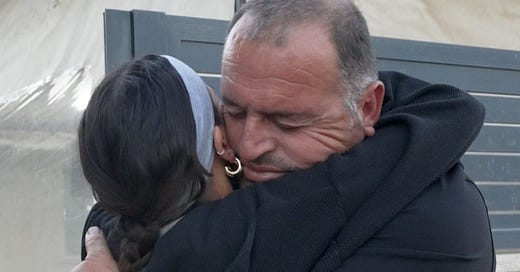When Natalie, a survivor of the Nova Music Festival was asked,
“How did you know which way to run?”
She had no answer.
She was a Jewish girl from New York visiting friends in the middle of the Gaza envelope while it was under invasion by thousands of terrorists and had no knowledge of which way was safe.
Would running south lead to a kibbutz that was safe or overtaken by Hamas?
Would running north on the road help her find police officers or lead her to the route of terrorist vehicles?
Would hiding in a ditch keep her safe from gunfire or leave her exposed like a sitting duck?
By a stretch of miracles, she made it out alive.
A citizen hero drove back and forth dozens of times, bringing her and 300 people to safety.
Natalie now speaks around the world telling her story, but keeps getting that same question during her interviewers, “How did you know which way to run?”
And time after time, she stumbled.
One listener who studied history, explained to her the term for this choice.
During the Holocaust, survival was also luck.
Any “wrong” (really random) move could result in selection to the gas chambers.
By a stretch of luck some survived.
Holocaust scholar Lawrence Langer explained that concentration camps, “cannot be viewed through the same lens we used to view normal human behavior since the rules of law and morality and the choices available for human decisions were not permitted in these camps for extermination. As important as it is to point out situations of dignity and morality which reinforce our notions of normal behavior, it is all the more important here to try to convey the ‘unimaginable,’ where surviving in extremity meant an existence that had no relation to our system of time and space and where physical survival under these conditions resulted in ‘choiceless choices’!”
Author and Holocaust survivor Viktor Frankl famously wrote in his book Man’s Search for Meaning, “The last of the human freedoms: to choose one's attitude in any given set of circumstances, to choose one's own way. And there were always choices to make. Every day, every hour, offered the opportunity to make a decision, a decision which determined whether you would or would not submit to those powers which threatened to rob you of your very self, your inner freedom; which determined whether or not you become the plaything to circumstance, renouncing freedom and dignity...”
Natalie didn’t know where she was going, but she made a choice to continue running for four hours: a choice of saying “yes” to life, survival, and hope.




so thoughtful and meaningful and luck